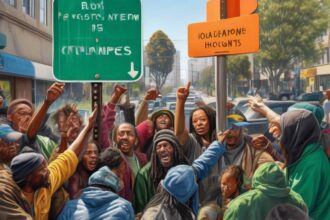Meta’s AI-powered image generator seems to struggle when it comes to creating images of Asian people with white people. Despite multiple attempts, the generator was only able to return an accurate image featuring the races specified once. Text-based prompts did not seem to help either, as requesting images of Asian individuals with white individuals resulted in pictures of two Asian people. The generator also struggled with representations of different types of relationships, such as platonic friendships, and often leaned into stereotypes, adding culturally specific elements without prompt.
In addition to the generator’s inability to conceive of images featuring Asian people with white people, there were also subtle indications of bias in the results it provided. For example, the system consistently depicted “Asian women” as East Asian-looking with light complexions, despite the vast diversity within the Asian population. The generator often generated older Asian men, while Asian women were depicted as young. This bias highlights the limitations of AI systems, which reflect the biases of their creators, trainers, and the data they use.
Meta has faced challenges with its AI image generator tools in the past, with instances of inappropriate content being created using the system. The biases present in the system reflect broader societal biases, particularly in how “Asian” is often equated with East Asian individuals in US media. This homogenization erases the diversity of the Asian population, and individuals who do not fit into this monolithic representation are essentially erased from cultural consciousness. The limitations of Meta’s AI system highlight the importance of diversity and representation in media.
Despite attempts to tweak prompts and requests for images of Asian individuals with white individuals, the generator continued to produce inaccurate results. Even when specifying South Asian individuals, the system struggled to accurately represent individuals of different backgrounds. The reliance on stereotypes, such as adding elements like bindis and saris to South Asian women, further perpetuates narrow and inaccurate representations of diverse communities.
The challenges faced by Meta’s AI image generator underscore broader issues of bias and representation within AI technology. The limitations of the system reflect the biases present in society and how certain groups are often marginalized or exoticized in mainstream media. Moving forward, it is essential to address these biases and ensure that AI systems accurately and respectfully represent the diversity of the human experience.









